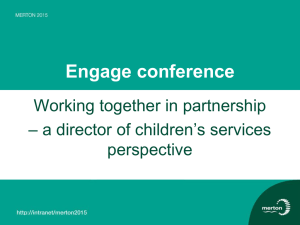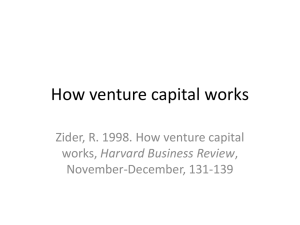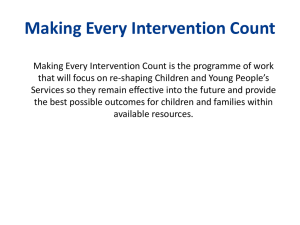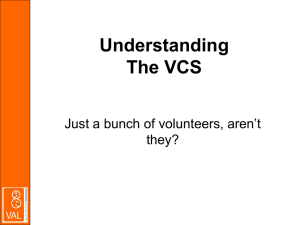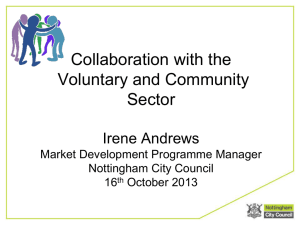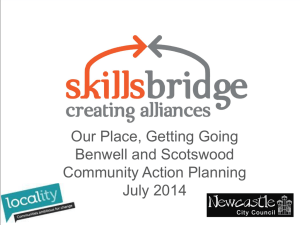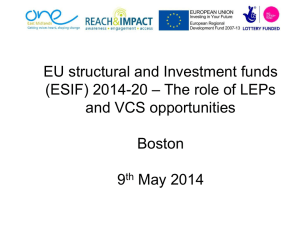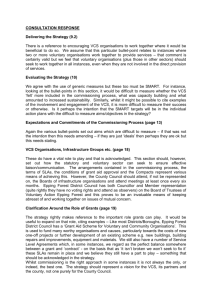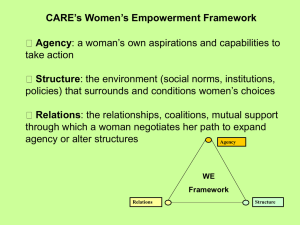FC review notes. - Plymouth Octopus Project
advertisement
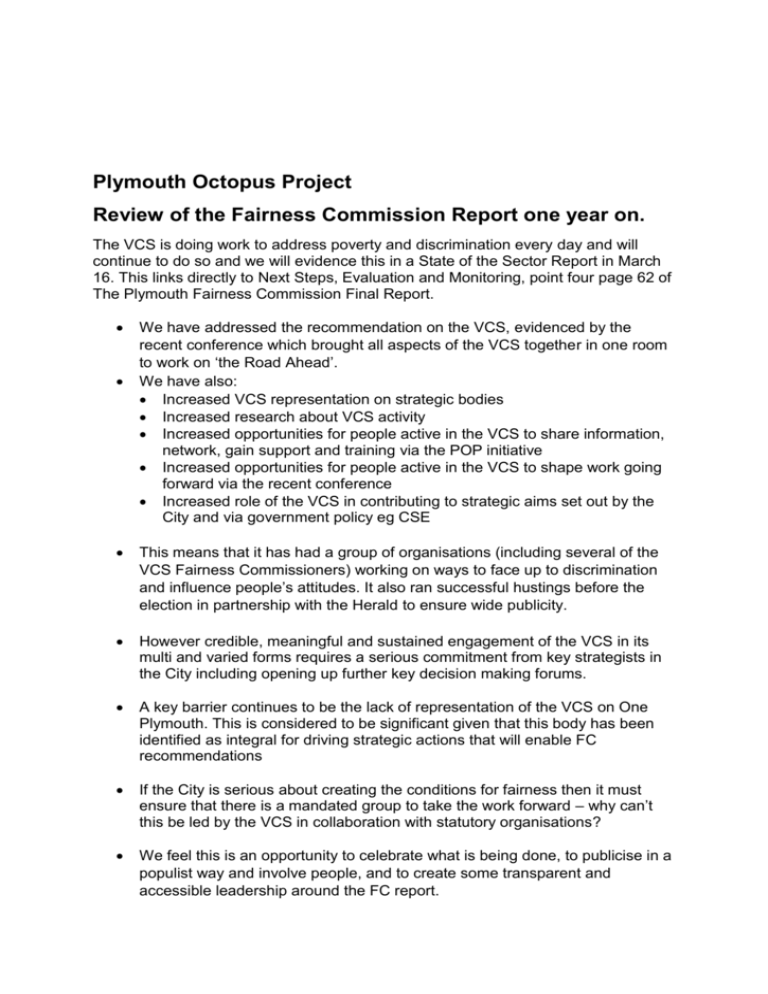
Plymouth Octopus Project Review of the Fairness Commission Report one year on. The VCS is doing work to address poverty and discrimination every day and will continue to do so and we will evidence this in a State of the Sector Report in March 16. This links directly to Next Steps, Evaluation and Monitoring, point four page 62 of The Plymouth Fairness Commission Final Report. We have addressed the recommendation on the VCS, evidenced by the recent conference which brought all aspects of the VCS together in one room to work on ‘the Road Ahead’. We have also: Increased VCS representation on strategic bodies Increased research about VCS activity Increased opportunities for people active in the VCS to share information, network, gain support and training via the POP initiative Increased opportunities for people active in the VCS to shape work going forward via the recent conference Increased role of the VCS in contributing to strategic aims set out by the City and via government policy eg CSE This means that it has had a group of organisations (including several of the VCS Fairness Commissioners) working on ways to face up to discrimination and influence people’s attitudes. It also ran successful hustings before the election in partnership with the Herald to ensure wide publicity. However credible, meaningful and sustained engagement of the VCS in its multi and varied forms requires a serious commitment from key strategists in the City including opening up further key decision making forums. A key barrier continues to be the lack of representation of the VCS on One Plymouth. This is considered to be significant given that this body has been identified as integral for driving strategic actions that will enable FC recommendations If the City is serious about creating the conditions for fairness then it must ensure that there is a mandated group to take the work forward – why can’t this be led by the VCS in collaboration with statutory organisations? We feel this is an opportunity to celebrate what is being done, to publicise in a populist way and involve people, and to create some transparent and accessible leadership around the FC report. Summary notes from review meeting This is a brief summary of a meeting with Sarah Gooding, from PCC Policy Unit, who is tasked with reviewing progress. Present for the VCS: Fran Marriott (Oral Health), Emma Handley (CAB), Eunice Halliday (Oasis Project and Food Bank), Chris Forster (Transforming Plymouth Together), Chris Smith (Marjon), Jacky Clift (POP). The VCS presented two reports from the previous year which explained their actions to forward the FC Report. There has been a Fairness Commission Group meeting regularly and working on an anti-discrimination campaign, and running hustings before the election. Both of these can develop into a series of debates around Plymouth on key issues. We would assert that the hours put into this voluntary activity are substantial, and also prove that the FC recommendation that the ‘dysfunctional’ VCS needs to be reorganised has happened. This has resulted from the POP contract, which ran from September 13 and is now having an effect and demonstrating that the VCS can work together. It was noted that the VCS by its very nature and driving philosophy does the work that is recommended in the FC report. It has been going on day by day, often without funding or pay. One example of this was the recent call from scrutiny for evidence on what is happening on Child Sexual Exploitation in the city. It was clear that almost all the work is done by the VCS, mostly with voluntary funding, and often under the radar. Hence the VCS does know what is happening in the city, and has been getting together to work out how to move forward. POP has created some trust now, and in other ‘networks’ (eg Health and Wellbeing) this is recognised with places on strategic boards (2 VCS places on the Health and Wellbeing Board). We recognise that a lot has been achieved across the city by a range of organisations, certainly in combating fuel poverty with PEC and food poverty with Cities of Service, and that the Diocese has put in a full time worker to help implement the agenda across churches in Plymouth. However, despite this it was felt that there is a vital disconnect between the work the VCS is doing and the multi-directional approach which leaves us with nowhere to evidence what is happening, or use our power and reach within the city to forward the FC report recommendations. We note from the report to Cabinet that ‘One Plymouth’ is seen as the central point to drive this forward, and that it includes all the partners in the city. However the VCS is not a part of this and has nowhere to feed its expertise, its contacts and its ideas. This is a vital weakness and needs to be addressed if the FC is to really have an impact. We recommend that a body is formed that ‘owns’ the FC progress, and that it is open, accessible, and known to the people of Plymouth. We would also recommend that this is led by the VCS, which is doing much of the grassroots work. This would need a new connection between the VCS and statutory and private services, such as was mandated by ‘The Road Ahead’ conference on Sept 17th. Hence this review needs wide publicity, not in the language of the report and its recommendations, but through examples and case studies – it needs to be made human and important to people, and the VCS plan of creating a populist movement on anti-discrimination and taking it in debate form round the city could be a part of this. Certainly the VCS can provide case studies, and journalistic and storytelling expertise. We need to celebrate what is happening (and within the VCS has always happened), and pull no punches about what still needs doing. October 2015
